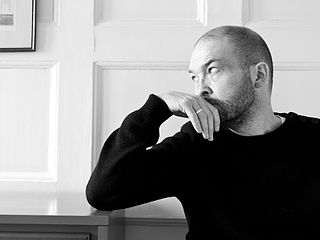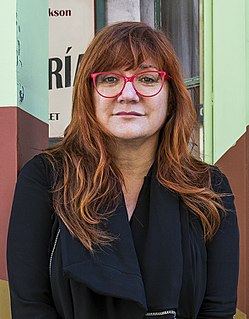A Quote by Channing Dungey
I think it's intelligent, emotional, character-rich storytelling - at the core, I think those are the most important elements, and I think they can be found across all of our dayparts. That's what, for me, ABC really stands for.
Related Quotes
Absolutely. I think, I think the American people, at their core, are a decent people. I think that we still have prejudice in our midst, but I think that the vast majority of Americans are willing, are willing to judge people on the basis of their ideas and their character. And in the case of the presidency, I think what's most important is whether the American people think that you understand their hopes and dreams and struggles and whether they think you can actually help them achieve those hopes and dreams.
I think all those years that I spent as a nurse, from the age of seventeen, just allowed me an insight into human emotion at those times of life when it's so important. And to see and witness those times of grief and love and loss and all those things was such a huge privilege, both in my own personal life, but it also, I think, spills over into my writing. I think the one thing that most novelists have is some degree of emotional intelligence, and if you don't have that, then perhaps you might struggle to be a novelist, because that has to come out somewhere.
Our goal is to have a country that's not divided by race. And my impression, as I travel around the country, is that that's the kind of country that most people want, as well, and that we all have prejudice, we all have certain suspicions or stereotypes about people who are different from us, whether it's religious or racial or ethnic, but what I think I found in the American people, I think there's a core decency there, where if they take the time, if they get the time to know individuals, then they want to judge those individuals by their character.
The international equity question arises from the costs of climate change itself and mitigation varying greatly across countries. It is affected by the historical responsibility for current greenhouse gas emissions, which countries which were not responsible for what's in the atmosphere now think are very important. Currently rich countries don't think those issues are very important.
I think there's a fundamental distinction between character-driven movies that are just really lovely slice-of-life movies and character-driven movies that you remember 20 or 30 years later; the common denominator with the ones you remember is that they all have some really complicated emotional problem at their core.
I think, when all bands start, when you're on your first album you have the benefit of hoovering up people who genuinely come across the music and really like it, but also those sort of 'floating voters' who just like pop music when they're young. And I think that when you get to your fourth album, those floating voters have dissipated and you're left with a core audience, and at that point you've really got to get your act together and move on to something else to keep afloat, or you'll just shrink with your core audience.
The way we treat people we think can't help or hurt us - like housekeepers, waiters, and secretaries - tells more about our character than how we treat people we think are important. How we behave when we think no one is looking or when we don't think we will get caught more accurately portrays our character than what we say or do in service of our reputations.
I think that the most important thing for me is, how is the character that I would be reading for? Is it interesting? Is there stuff to do? Are there things that you can do with the character? How can you play it out? Just those kinds of things that are very important for an actor. Also, a good director and good dialogue.
I think people would be up in arms. I think we would most likely have a similar situation to what happened in the 60s. I don't know if it would be as violent, I think it would be difficult to say that. But I think that, from what I can understand, our nation as a whole is largely against the war as it stands.
You don't get roles like leading character in 'Christine' very often because people don't really like women on film to be unlikable. I think Christine is lovable, but I don't think she's likable. I think there's a fundamental difference. For me, those are the richest ones. Men have had a career of doing those kind of things.

































